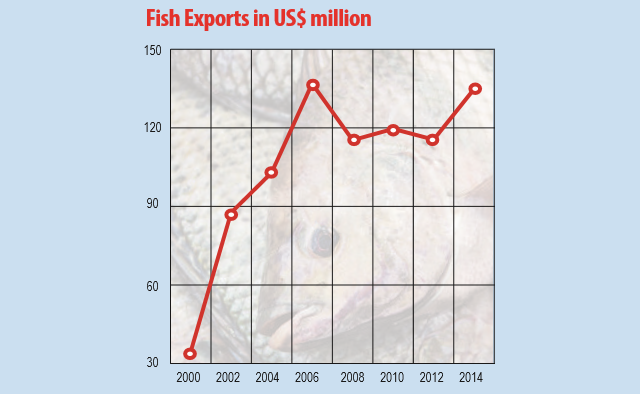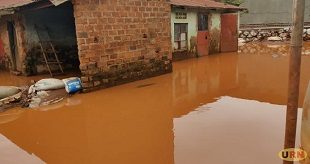
Without a survey of the actual fish stock, fisheries managers focus on what they get out to ensure sustainability
For some time now, fish catchers, processors, traders and government officials involved in Uganda’s fish sector have been saying that fish stocks in Lake Victoria are declining. The problem appears to be shared by Kenya and Tanzania which share the lake with Uganda.
Despite this, the absence of statistical evidence of the decline based on any census is glaring. Such stock assessment is important for devising proper management strategies for fisheries.
A visit to the Ministry of Agriculture, Animal Husbandry, and Fisheries website that initially promises to offer some evidence under its section titled `Statistics’, instead, it leads to a dead end with a simple message: “Information coming soon”.
In an attempt to find evidence, The Independent has invested in an extensive investigation and discovered a few surprises. In the absence of actual stock surveys, the amount of fish caught can be a reliable proxy.
But establishing the extent to which Lake Victoria fish stocks are declining is difficult partly because fish, whether fresh, sun-dried, or smoked, is a major protein staple in Uganda. Most of it is caught, traded, and processed by small artisanal operators and ends up on the plate without any of the activities being tabulated into the national numbers.
According to the sector report present by the Directorate of Fisheries Resources Entebbe to the Joint Agricultural Sector Annual Review in August, total fish captured in Uganda declined by 14.6.7% from 461,730 metric tonnes in 2014 to 394,224 metric tonnes in 2015. The report notes that fish exports to international markets declined by just 1.8% to 17,279 metric tonnes in 2015.
Uganda is, however, also the biggest exporter of fish in the region; mainly to Rwanda, DR Congo, and South Sudan. But all this is rarely mentioned whenever fish catch and trade figures are mentioned.
Instead, the focus almost always on the export performance on the fish sector to the EU, USA, United Arab Emirates, and Australia. The EU takes over 70% of the fish exports valued at 60 million Euros (Approx.Shs230 billion). It has been roughly the same value from 2012, according to the EU’s trade figures from Nov.4, 2016.

Closing processing plants
Related to fish export figures are the gloomy tales of fish processing plants that have closed business. These closures are often cited as evidence that there are no longer enough fish stocks to support their operations. Masese fish landing site in the eastern Uganda town of Jinja, some 80kilomtres from the capital, Kampala, is often cited.
In the 1980s and 90s, Masese boasted four busy fish processing firms; Masese Fish Packers Ltd, Marine and Agro Fish Processing ltd, Gomba Fish Processing Ltd, and Unifoods. At the time, however, fish exports were just 4,751 metric tonnes in 1991. They rose gradually to peak at 36,616 metric tonnes in 2005. That is when talk of depleted stocks rose. Then Minister for Agriculture, Hillary Onek, in 2008 blamed “the number of factories that went up dramatically”. By 2015, last year, the exports had declined to 17,297 metric tonnes.
Today, only one firm, Unifoods, which is a subsidiary of Karmic Foods, still processes fish at Masese.
The rest of the factories that stood as pillars of business life on the shores of Lake Victoria in this town, lie dead. At the site of one of them; Masese Fish Packers Ltd, the processing machines, cold storage trucks, refrigerators, cold storage facilities are rusting away.
Yosam Atobi, a resident at Masese, who saw the better times of the operations of the fish factories told The Independent on Nov. 30 that residents ~used to enjoy life” as the factories provided jobs to the local residents and boosted businesses.
“People used to be many here and businesses were booming. Now, that is no more,” said Atobi, who was standing right on the edge of the lake that was being hammered by a sudden wind, into rugged grey sheet with flecks of white.
All around the lake, beyond Jinja, 10 out of 19 fish processing firms have collapsed over the past decade. The Independent has visited some of the sites of the defunct fish processing firms and landing sites from Jinja to Kampala, Entebbe, and Masaka to Rakai.
 The Independent Uganda: You get the Truth we Pay the Price
The Independent Uganda: You get the Truth we Pay the Price



